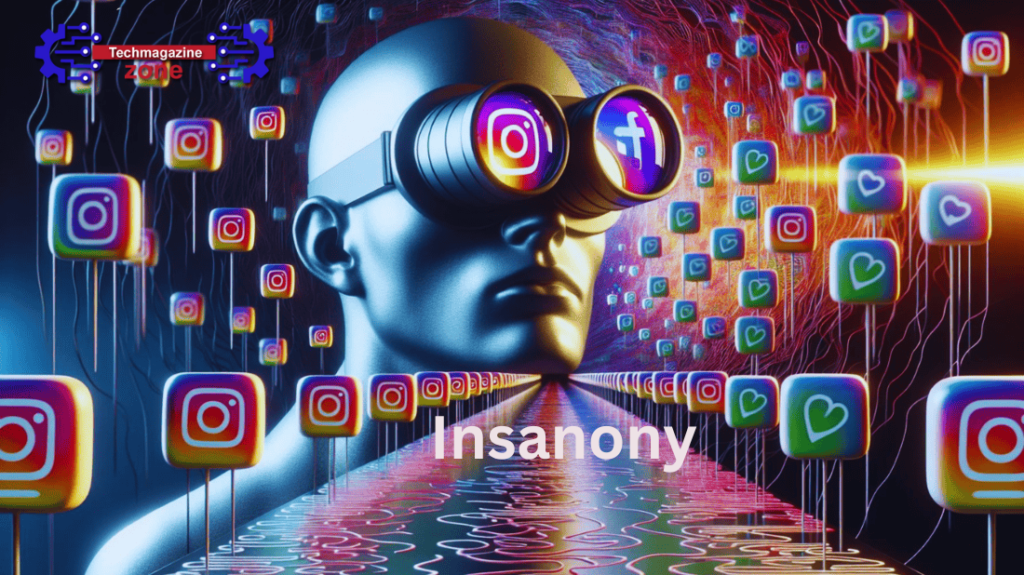The English language is a constantly evolving system, with new words and phrases entering the lexicon every year. While some of these words gain immediate popularity and widespread usage, others may remain niche terms, understood by only a few. One such intriguing word that has appeared in recent times is “Insanony.” But what does this word mean, and how has it come to be a part of modern English? In this article, we will explore the origin, meaning, usage, and implications of “Insanony,” breaking it down into manageable sections for better understanding.
What is “Insanony”?
“Insanony” is a relatively new term that has yet to fully establish itself in mainstream dictionaries or common parlance. The word seems to combine elements of “insane” and “anon,” which may have been inspired by online discussions, modern linguistic trends, or pop culture.
To break it down:
- Insane refers to a state of mental imbalance or irrational behavior. In a more casual sense, it can also describe something extreme or out of the ordinary.
- Anon, a shortening of the word “anonymous,” refers to a person or action that is carried out without revealing one’s identity. It also appears frequently in the context of online forums or spaces where individuals wish to remain unidentifiable.
When fused together, “Insanony” may imply an act, statement, or person whose behavior or identity is both unpredictable and shrouded in anonymity. This could be a fitting description for many characters or actions found in the digital world, where people may act without restraint while maintaining an anonymous presence.
The Origins of “Insanony”
As with many new terms, the exact origin of “Insanony” is not easy to trace. It is possible that the word emerged organically in online spaces, where users are often eager to create new linguistic constructs that reflect the realities of modern life. Given the blending of the terms “insane” and “anon,” it’s plausible that the word was first used to describe individuals or behaviors that were chaotic, unexpected, or wildly unpredictable, all while the person’s true identity remained hidden.
Online forums, particularly those dedicated to creative writing, digital art, or gaming communities, often generate new slang as a way to communicate more efficiently or express shared experiences. “Insanony” may have begun in these circles before trickling into wider usage.
Why “Insanony” Matters in Modern English
Language is not just a means of communication—it is a reflection of cultural values, social structures, and emerging trends. “Insanony” serves as an interesting example of how new words often arise from the intersection of technology, social behaviors, and the evolving need to express complex ideas in simpler forms.
The Role of Anonymity in the Digital Age
One of the key reasons “Insanony” holds significance is the increasing importance of anonymity in modern life, especially in the digital world. In online communities, people often operate under pseudonyms, usernames, or anonymous profiles, allowing them to explore various facets of their identity without fear of judgment or consequences. This form of anonymity can lead to behaviors that might be considered “insane” in real life—extreme opinions, impulsive actions, or risk-taking behaviors that would not occur in face-to-face interactions.
“Insanony” encapsulates this paradox: a person or behavior that is simultaneously irrational and hidden behind a veil of anonymity. As the digital world continues to shape our social interactions, the term could be a way to express how anonymity amplifies the unpredictability and extremity of certain behaviors.
The Rise of “Insanony” in Internet Culture
In internet subcultures, especially those on platforms like Reddit, 4chan, and Twitter, users often adopt “anon” personas to engage in conversations without the baggage of their real-world identity. These interactions can be both humorous and bizarre, ranging from wild conspiracy theories to surreal creative works. The unpredictable, sometimes “insane,” nature of these contributions is where the word “Insanony” seems to find its roots.
Moreover, this term could be used to describe a specific type of internet troll or “meme lord”—individuals who revel in shocking others, often pushing the boundaries of acceptable behavior. These individuals hide behind anonymous profiles to avoid the social consequences of their actions, and their behavior could be described as “Insanony.”
“Insanony” in Pop Culture and Media
Like many slang words, “Insanony” might find its way into pop culture as a concept, even if it doesn’t immediately become a dictionary staple. For example, TV shows, movies, or video games that explore themes of online anonymity, digital avatars, and virtual realities might reference “Insanony” as a way of characterizing certain players or characters who embrace reckless abandon in their anonymous forms.
For instance, the rise of virtual worlds like those found in games such as World of Warcraft or Fortnite, or social platforms like Twitch, provides a fertile ground for this kind of behavior. The anonymity provided in these spaces allows users to act in ways that might be considered out of character or even “insane” by their real-world counterparts.
Furthermore, the blending of reality and virtual worlds, as seen in recent media like Black Mirror, often explores the consequences of unfiltered expression under the guise of anonymity. In such contexts, the term “Insanony” might be used to describe characters whose actions, when stripped of social norms and consequences, appear increasingly erratic or even destructive.
The Psychological Implications of “Insanony”
While “Insanony” primarily exists as a term that captures online behaviors, it also speaks to deeper psychological concepts. The rise of digital anonymity has had profound effects on human behavior. Without the social pressures of face-to-face interactions, people are more likely to act impulsively, exhibit extreme emotions, or engage in destructive behavior, all of which could be described as “insane” in nature.
In psychology, the “online disinhibition effect” describes how individuals behave more freely and with less restraint in online environments. This can manifest in both positive and negative ways, from creative self-expression to toxic behavior. “Insanony” could be a shorthand term to describe the darker aspects of this disinhibition—when individuals, freed from real-world consequences, behave in erratic, impulsive, or extreme ways.
Anonymity and Ethical Boundaries
“Insanony” also raises important questions about ethics and accountability in the digital age. When people are allowed to operate under a veil of anonymity, it becomes more difficult to hold them responsible for their actions. In some cases, this leads to harmful behaviors such as cyberbullying, trolling, or the spreading of misinformation. The concept of “Insanony” could be a commentary on these ethical dilemmas, highlighting the tension between freedom of expression and the potential harms of unrestrained online activity.
How “Insanony” May Evolve in the Future
As with any new word or phrase, the future of “Insanony” is uncertain. Will it become widely accepted, or will it fade into obscurity? Only time will tell. However, the word’s blend of concepts—anonymity, unpredictability, and irrationality—may continue to resonate with the complexities of modern digital life.
Potential for Broader Usage
“Insanony” could easily find its place in discussions about online behavior, internet culture, and digital identity. It might be used to describe not just individuals but also entire online communities or trends that thrive on chaotic or unregulated spaces. With the continued evolution of virtual spaces, especially with the growth of platforms like virtual reality (VR) and augmented reality (AR), the term could adapt to describe new types of behaviors or experiences.

Conclusion: The Significance of “Insanony” in Contemporary Discourse
While “Insanony” may not yet be a fully established word in mainstream dictionaries, it represents a fascinating intersection of modern language, technology, and psychology. The term reflects the challenges and contradictions of living in a digital world where anonymity can lead to both creativity and chaos. As society grapples with the implications of digital anonymity, “Insanony” may serve as a useful shorthand to describe the unpredictable, sometimes irrational behaviors that emerge when individuals feel unaccountable.
As the world becomes increasingly connected, and as new forms of digital interaction continue to evolve, terms like “Insanony” will undoubtedly shape how we understand the complexities of human behavior in the online age. Whether or not it becomes a staple of everyday language remains to be seen, but its current usage serves as a poignant reminder of the forces shaping modern identity and communication.
